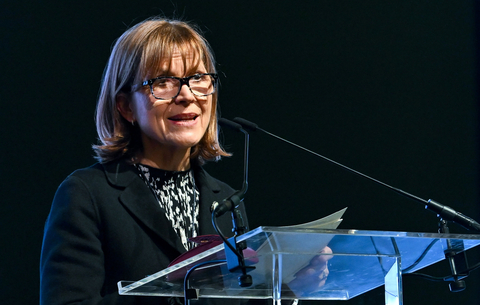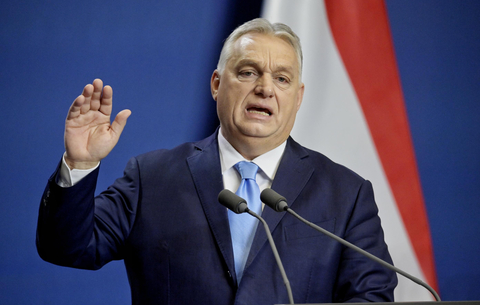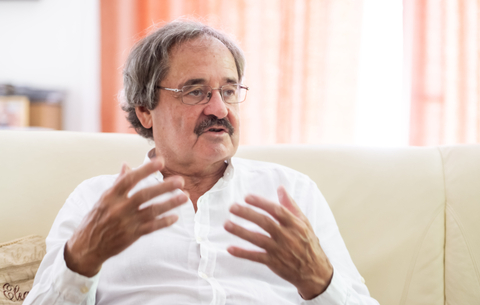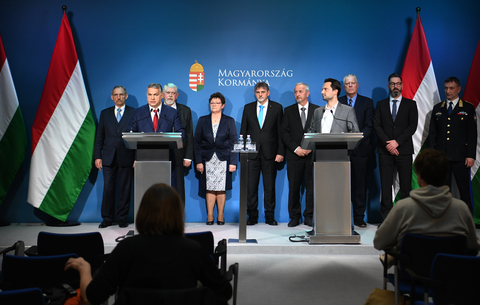Magyar Telekom and T-Mobile
Though the Economic Competition Office has no objections to a merger between Magyar Telekom and its mobile subsidiary, competitors believe the move will give the group a huge advantage.
A brand and a subsidiary - that's just about all that's left of Hungary's first and still market-leading mobile network. T-Mobile had revenues of HUF263b last year, and a 45.29% share of a market with more than 9m subscribers. Magyar Telekom's decision to merge with its subsidiary must still be endorsed by the two companies' AGMs, but in practice it's a done deal. Deutsche Telekom, which holds 59.21% of Magyar Telekom, has already given the nod to the deal, and Magyar Telekom owns T-Mobile outright. Since there will be no change in ownership, there is little prospect of the Economic Competition Office kicking up a fuss either.
The National Telecommunications Authority is unconcerned. They have said that T-Mobile's GSM licenses can be passed on to its legal successor. The state holds a golden share in Magyar Telekom, but the Ministry for IT and Telecommunications, which exercises that share, has raised no objections.
Westel 900 GSM Mobile Telecoms, which was set up in 1993, has gradually lost its independence. Deutsche Telekom bought a 49% stake in Westel six years after the company's founding, and immediately handed that stake over to Matáv (later to become Magyar Telekom), in exchange for $885m. Westel was rebranded as T-Mobile in 2004 in order to fit into Deutsche Telekom's corporate scheme at a cost of some HUF5.92bn. And now the company is to be merged into its parent.
Competitors might be upset by the merger, but shareholders will do well out of it. Elek Straub, Magyar Telekom's CEO, recently promised that the fusion would bring savings of "several percent" - with just 1% improving results by HUF6bn. The two companies, which have 2.7m fixed-line subscribers and 4m wireless subscribers between them, are below their optimum size. The merger will allow the new company to offer combined fixed-line and wireless services. It would be possible, for example, to follow the US practice of offering free minutes that could be used both from fixed-line phones and mobiles. And the company could give discounts to customers paying for several different services. And there could even be integrated handsets, programmed to use the cheapest available network.
Competitors are less enthusiastic. Vodafone Hungary refused to comment on the merger. Pannon GSM issued a terse statement saying that they would "closely follow the individual arms of the merged company" and that they expected regulators to make sure that T-Group's market dominance would not grow.
Some analysts are less concerned, arguing that fleet-footed competitors could do well if T-Mobile is run by the more bureaucratic, slow-moving Magyar Telekom.
The National Telecommunications Authority is unconcerned. They have said that T-Mobile's GSM licenses can be passed on to its legal successor. The state holds a golden share in Magyar Telekom, but the Ministry for IT and Telecommunications, which exercises that share, has raised no objections.
Westel 900 GSM Mobile Telecoms, which was set up in 1993, has gradually lost its independence. Deutsche Telekom bought a 49% stake in Westel six years after the company's founding, and immediately handed that stake over to Matáv (later to become Magyar Telekom), in exchange for $885m. Westel was rebranded as T-Mobile in 2004 in order to fit into Deutsche Telekom's corporate scheme at a cost of some HUF5.92bn. And now the company is to be merged into its parent.
Competitors might be upset by the merger, but shareholders will do well out of it. Elek Straub, Magyar Telekom's CEO, recently promised that the fusion would bring savings of "several percent" - with just 1% improving results by HUF6bn. The two companies, which have 2.7m fixed-line subscribers and 4m wireless subscribers between them, are below their optimum size. The merger will allow the new company to offer combined fixed-line and wireless services. It would be possible, for example, to follow the US practice of offering free minutes that could be used both from fixed-line phones and mobiles. And the company could give discounts to customers paying for several different services. And there could even be integrated handsets, programmed to use the cheapest available network.
Competitors are less enthusiastic. Vodafone Hungary refused to comment on the merger. Pannon GSM issued a terse statement saying that they would "closely follow the individual arms of the merged company" and that they expected regulators to make sure that T-Group's market dominance would not grow.
Some analysts are less concerned, arguing that fleet-footed competitors could do well if T-Mobile is run by the more bureaucratic, slow-moving Magyar Telekom.
English version
hvg.hu
2005. október. 17. 10:11
New beginning
English version
hvg.hu
2005. október. 17. 10:05
Opinion
English version
hvg.hu
2005. október. 17. 10:19
Dreams of the city
English version
hvg.hu
2005. október. 17. 10:07
"Third way" platform
English version
hvg.hu
2005. október. 14. 14:12









